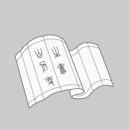
词典使用与英语词汇学习--中国英语专业学生使用双解词典之实证研究
全新正版 极速发货
¥ 16.15 4.6折 ¥ 35 全新
库存3件
广东广州
认证卖家担保交易快速发货售后保障
作者陈玉珍
出版社厦门大学出版社
ISBN9787561544785
出版时间2012-12
装帧其他
开本32开
定价35元
货号1200417584
上书时间2024-06-29
- 最新上架
商品详情
- 品相描述:全新
- 商品描述
-
目录
Chapter 1
Introduction
1.1 Rationale Behind BLDs
1.2 Motivations for the Research
1.2. 1 The Popularity of BLDs with Tertiary-Level Chinese EFL Students
1.2.2 The Research Gap in Empirical BLD Studies in Mainland China
1.2. 3 The Rise of Electronic Dictionaries
1.3 Role of Dictionary Use in L2 Vocabulary Learning
1.3. 1 Dictionary Use as a Strategy of L2 Vocabulary Learning
1.3.2 The Dictionary and L2 Vocabulary Learning
1.3.3 Dictionary Use: Intentional or Incidental Learning
1.4 Aims of the Research
1.5 Organization of This Book
Chapter 2
An Overview of Bilingualized Dictionaries
2. 1 BLDs: Past and Present
2. 1.1 Bilinguaiization as a Genre
2. 1.2 BLDs in China
2. 2 BLDs: Dictionary Typology
2. 2. 1 James' Typology of BLDs
2. 2. 2 Marello' s Categorization of BLDs Intended for Learners
2. 2. 3 Some Tentative Approaches to Classifying BLDs
2. 3 BLDs: Dictionary Criticism
2. 3. 1 Perceived Strengths and Weaknesses of BLDs
2. 3.2 BLDs and Pedagogical Lexicography
2.4 BLDs: Dictionary Use
2.4. 1 Perceptions of BLDs and Patterns of Use
2.4. 2 Dictionary Effectiveness: BLDs vs. Other Types of Dictionaries
2. 4. 3 Language-Oriented Lookup Behavior in CALL Context
2.5 Summary
Chapter 3
A Literature Review of Dictionary Use and Vocabulary Learning
3.1 Dictionary Use Research: A Brief Survey
3.2 Vocabulary learning: Incidental vs. Intentional
3.2. 1 Distinction Between Incidental Learning and Intentional Learning
3.2. 2 Incidental Learning and Intentional Learning as Technical Terms
3.3 Dictionary Use in Vocabulary Learning
3.3. 1 Is Dictionary Useful at all for Vocabulary Learning?
3.3.2 Which Type of Dictionary Is More Effective for Vocabulary Learn-
3.4 Methodological Issues in Dictionary Use Studies
3.4. 1 Background-Oriented Methods
3.4. 2 Process-Oriented Methods
3.4. 3 Result-Oriented Methods
3.5 Summary
Chapter 4
A Survey of BLD Use in EFL Learning Context
4. 1 Research Questions
4. 2 Design Issues
4. 3 Participants
4. 4 Procedure
4. 5 Results and Findings
4. 5. l General Information
4.5.2 Use of BLDs
4. 5. 3 Perceptions and Evaluations of BLDs
4. 5.4 Needs of BLD Users
4.6 Interpretation and Discussion
4.7 Summary
Chapter 5
BLD Use and Vocabulary Learning in Reading Context
5.1 Research Hypotheses
5.2 Design Issues
5.2. 1 Selection of the Reading Material and Target Lexical Items
5.2. 2 Design of the Reading Task
5.2. 3 Design of the Vocabulary Retention Tests
5.2.4 Selection of the BLDs and Solution to the Problem of Dictionary
Underuse
5.2. 5 Selection of the Vocabulary Levels Test
5.3 Participants
5.4 Testing and Scoring Procedures
5.5 Results and Findings
5.5.1 Vocabulary Comprehension
5.5.2 Vocabulary Retention
5.5.3 Vocabulary Levels and Reading Conditions
5.6 Interpretation and Discussion
5.6. 1 BLD use vs. Contextual Guessing
5.6. 2 BLD Use and Incidental Vocabulary Acquisition
5.6. 3 Comparison Between BLDs in Paper and Electronic Form
5.6. 4 The Effects of Vocabulary Levels and Reading Conditions on dental Vocabulary Acquisition
5.7 Summary
Chapter 6
BLD Use and Vocabulary Learning in Sentence Context
6. 1 Research Hypotheses
6. 2 Design Issues
6. 2. 1 Design of the Vocabulary Tasks
6.2.2 Selection of the Target Lexical Items
6. 2. 3 Design of the Retention Tests
6. 2. 4 Selection of the Dictionaries
6. 3 Participants
6.4 Testing and Scoring Procedures
6.5 Results and Findings
6.5.1 Vocabulary Comprehension and Production
6. 5.2 Vocabulary Retention
6. 5.3 Vocabulary Levels and Dictionary Types
6. 6 Interpretation and Discussion
6. 6. 1 BLD Use and Task Completion
6. 6. 2 Problems with BLD Use During Task Completion
6. 6. 3 BLD Use and Incidental Vocabulary Acquisition
6. 6.4 The Effects of Vocabulary Levels and Dictionary Types on Inci-
dental Vocabulary Acquisition
6.7 Summary
Chapter 7
BLD Lookup Behavior and Vocabulary Learning in CAI,I, Context
7. 1 Research Hypotheses
7.2 Design Issues
7.2. 1 A specially designed CALL Program
7.2. 2 Design of Reading Task
7.2. 3 Design of Vocabulary Retention Test
7.2.4 A Pilot Test
7.3 Participants
7.4 Testing and Scoring Procedures
7.5 Results and Findings
7.5. 1 Selections of Three Language Options
7.5.2 Lookup Patterns for Individual Target Words and Word Retention
7.5.3 Frequency of Dictionary Lookups and Word Retention
7.5.4 VLT Scores, Click Behavior and Vocabulary Learning Outcomes
7.6 Interpretation and Discussion
7.6. 1 Overall Language Preference of BLD Users
7.6. 2 BLD Lookup Behavior and Incidental Vocabulary Acquisition
7.6. 3 Vocabulary Proficiency, BLD Use and Vocabulary Learning
7.7 Summary
Chapter 8
Conclusion
8. 1 Major Findings of the Research
8.1.1 General Dictionary Use, BLD Evaluation and BLD Users' Needs
8.1.2 Comparisons Between PBLDs and EBLDs
8.1.3 BLD Use and Vocabulary Task Completion
8.1.4 BLD Use and Incidental Vocabulary Acquisition
8. 1.5 BLD Use and Users' Vocabulary Proficiency Levels
8. 1.6 BLD Lookup Behavior and Vocabulary Learning
8.2 Implications of the Research
8.2. 1 Implications for EFL Vocabulary Teaching
8. 2. 2 Implications for Dictionary Use Instruction
8.2. 3 Implications for Lexicographic Practices
8.3 Innovations of the Research
8.4 Limitations of the Research
8.5 Suggestions for Future Research
Appendices
References
Acknowledgements
— 没有更多了 —












以下为对购买帮助不大的评价